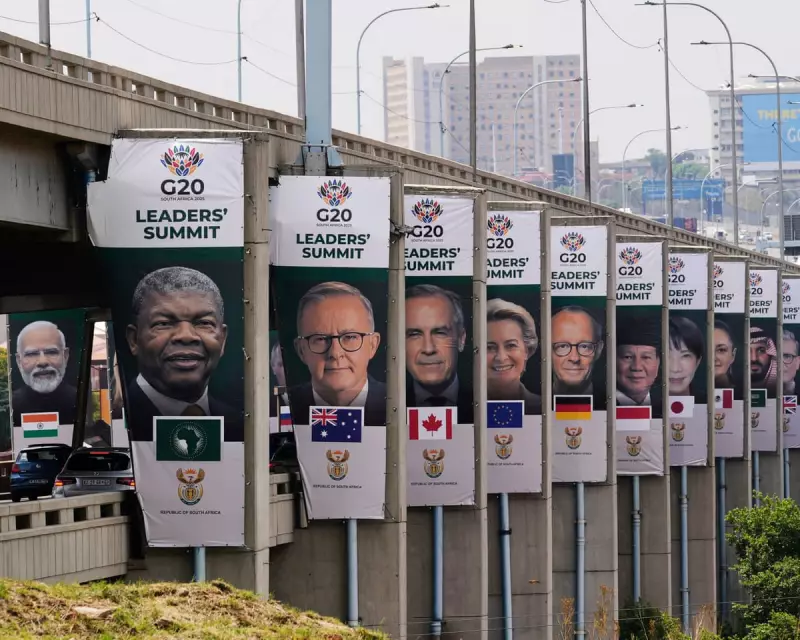
South Africa has launched a stinging rebuke against the United States, accusing the Trump administration of attempting "coercion by absentia" after Washington confirmed it would boycott the upcoming G20 leaders' summit in Johannesburg.
Diplomatic Standoff Escalates
The United States sent a formal note last weekend confirming that no American officials would attend the G20 leaders' summit on 22-23 November, marking the first time this global economic forum has been hosted on African soil. In a move that has heightened diplomatic tensions, the US stated it would not accept any declaration issued at the conclusion of the gathering.
Chrispin Phiri, spokesperson for South Africa's foreign ministry, delivered a strongly worded response: "Washington's absence negates its role over the G20's conclusions. But we cannot allow coercion by absentia to become a viable tactic; it is a recipe for institutional paralysis and the breakdown of collective action."
Policy Divisions Take Centre Stage
According to documents seen by Agence France-Presse, the US embassy in Pretoria communicated that Washington would only accept a "chair's statement" rather than a full leaders' declaration. The American position was unequivocal: "South Africa's G20 priorities run counter to US policy views, and we cannot support consensus on any documents negotiated under your presidency."
The diplomatic note further emphasised that the US opposes issuance of any G20 summit outcome document presented as a consensus position without American agreement.
South Africa's presidency agenda for the G20 includes two key pillars:
- Improving debt sustainability for low-income countries
- Securing increased finance for a 'just energy transition' away from fossil fuels
The African nation has significantly expanded participation for the summit, inviting an additional 22 countries beyond the core G20 membership, which comprises 19 of the world's largest economies and the European Union.
Historical Context and Future Implications
The current dispute follows earlier criticism from US Secretary of State Marco Rubio, who stated in February that South Africa's chosen G20 themes of "solidarity, equality, & sustainability" amounted to "anti-Americanism."
This diplomatic clash occurs against the backdrop of President Trump's accusations that South Africa engages in racial discrimination against the minority white Afrikaner community - allegations that the South African government has vehemently denied.
The United States, which is scheduled to assume the G20 presidency next year, has expressed concerns about the forum's expanding scope beyond its original focus on global financial and economic issues when established in 1999.
US Treasury Secretary Scott Bessent remarked at an Oval Office event: "We have whittled down the G20 back to basics... the G20 had become basically the G100 this past year. So it will be a concentrated group in Miami, seeing the best America has to offer, with American leadership."
South African President Cyril Ramaphosa addressed the situation with diplomatic nuance last week, stating: "I have said in the past I don't want to hand over to an empty chair. But the empty chair will be there, probably symbolically hand over to that empty chair and talk to President Trump and say, 'Even though you are not here, I am now handing over to you the reins of chairing or being president of the G20.' Because the G20 as an entity continues, whether they are here or not."
The G20 traditionally issues a communique at the conclusion of each year's leaders' summit. Last year's statement faced criticism from Ukraine and its Western allies for failing to explicitly mention Russia's invasion of Ukrainian territory.
This year's diplomatic confrontation raises significant questions about the future of multilateral cooperation and the ability of global institutions to function effectively amid growing geopolitical divisions.





